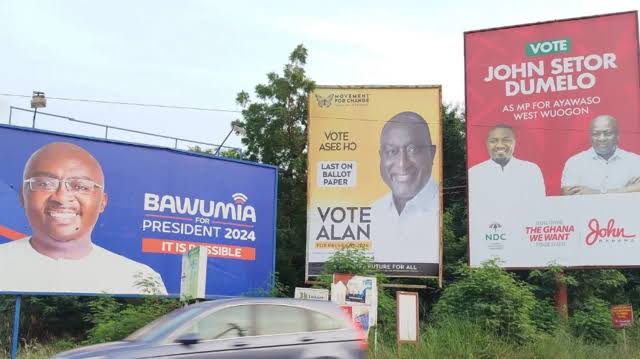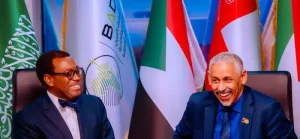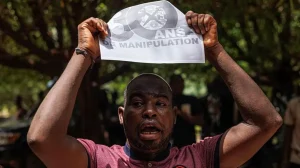
Ghanaians headed to the polls on Saturday, December 7, 2024, to elect a new president and parliament in what is shaping up to be one of the most tightly contested elections in the nation’s democratic history. The main contenders are Vice President Mahamudu Bawumia, representing the ruling New Patriotic Party (NPP), and former president John Mahama of the opposition National Democratic Congress (NDC).
Economic Hardships Dominate Campaigns
Economic woes, including high inflation, a depreciated cedi, and a recent $3 billion IMF bailout, have taken center stage in voter concerns. “We want to vote for change. The economic situation is very hard,” said James Nsiah, a retired policeman casting his vote in Accra.
Despite some signs of recovery, such as inflation easing from over 50% to 23%, many Ghanaians continue to grapple with a high cost of living and limited job opportunities.
Bawumia, a UK-trained economist, campaigned on promises to sustain the government’s digitalization agenda and leverage free education and health programs. At his final rally in Accra, he urged voters, “I know what I want to do from day one in the presidency. Give me the chance to transform this nation.”
Meanwhile, Mahama, seeking a return to power, pledged to “reset” Ghana by extending industrial working hours to create jobs and renegotiating parts of the IMF deal. He vowed to address the challenges that plagued his previous tenure, including power outages and financial instability, stating, “We need a 24-hour economy to meet the aspirations of our people.”
A Historically Close Contest
The election is also significant as President Nana Akufo-Addo completes his second and final term, with the NPP aiming for an unprecedented third consecutive term in office. However, voter discontent with the NPP’s economic policies has given Mahama a potential edge, according to analysts.
Both candidates hail from northern Ghana, a region that could prove decisive in the final outcome due to its historical NDC leanings and growing political fragmentation.
Security and Regional Challenges
In an effort to maintain electoral integrity, Ghana’s government temporarily closed all land borders from Friday night until Sunday. Meanwhile, security concerns, including the threat of spillover from jihadist conflicts in neighboring Burkina Faso and illegal gold mining, have added complexity to the political landscape.
Voting began at 7:00 GMT and is expected to close at 17:00 GMT, with early results anticipated by Sunday and final results by Tuesday.
This election underscores Ghana’s reputation as a stable democracy, with power alternating between its two major parties since the advent of the Fourth Republic in 1992. However, with economic and security challenges at the forefront, the stakes have never been higher for the West African nation.








